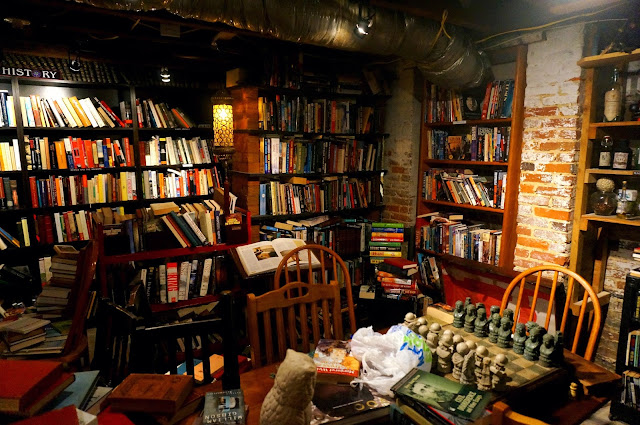It's funny. As a kid when I imagined what 23 would be like, it looked nothing like this. The picture I had in mind was a highly romanticized version of adulthood where bills were easily paid, meals were prepared skillfully, and I had life figured out. Everything, I assumed, would have settled down by the time I was in my mid-early-twenties. How hilarious and naïve is that?
I haven't fully settled into my life yet, and who knows how long it will be before I do. I'm still fidgety and trying to suss out some things now. Figuring out where I fit in the world, and how I can/want to/and do interact with it all is harder than I would have guessed. And that's not even taking into consideration the mechanics of actually being an "adult." Things like work, rent, groceries... Eight-year-old Erica never thought about those practicalities. But I am thinking about them now. I have to.
There's a lot of things that are out of my control in my life, and very few things within my realm of influence. This week, I had a sort of epiphany about the extra noise I have surrounding me, and I'm on a new mission to silence it. I'm already going through my things and asking myself what I truly use, or what has real value to me, and figuring out what else can be repurposed or donated. I want less things in my way. I want to declutter my personal life in the same way. It's time to simplify everything. Out with the excess, in with things of significance. Less mess, less stress, more work and more reward.
Right now, everything in my life is about to change. I'm not entirely sure how it's going to change, and I can never be sure that it's going to be a change for the better, but I can feel the precipice before me. One push this way, everything falls into place. One push that way... Well, you see where I'm going with this. But I have a good feeling. I think this time, things are going to fall into place. Something great is just around the corner.
Sitting here this morning, looking at the different, clearly defined paths I can follow next, I'm tempted to hesitate before I make any decisions. I have a bad habit of overanalyzing things, and it's hard to turn that part off. But I managed it and already, I've set things in motion. Things are happening. I've taken that leap before fear got the better of me.
Making a choice when it's something that intimidates you is, well, intimidating. But the fear of failing is nothing compared to the fear of doing nothing. Change has already started to snowball. Now, all I can do is sit back and hope that that boulder rolling down the hill is headed in the right direction and I don't regret the choices later, ending up in some Sisyphus situation where I'll forever be trying to push the rock back up the mountain.
Typically, I'm not good with having faith that everything will work out. I don't do well on blind trust -- I do better with hard evidence, some proof that ABC will lead to XYZ. But life isn't always clean (in fact, it's often the opposite). Life doesn't always give you a single path to follow, it gives you options, and it's up to you to pick a direction and go. I'm not going to wait around forever waiting for proof or a sign of what I should do. Passivity makes me anxious, so even though all this change in my life has me a little nervous, at least I'm doing something about it. I'm moving forward.
I'm making choices. I'm simplifying as I go. I'm hoping for the best, and maybe all that positivity will bounce back to me one day.

















